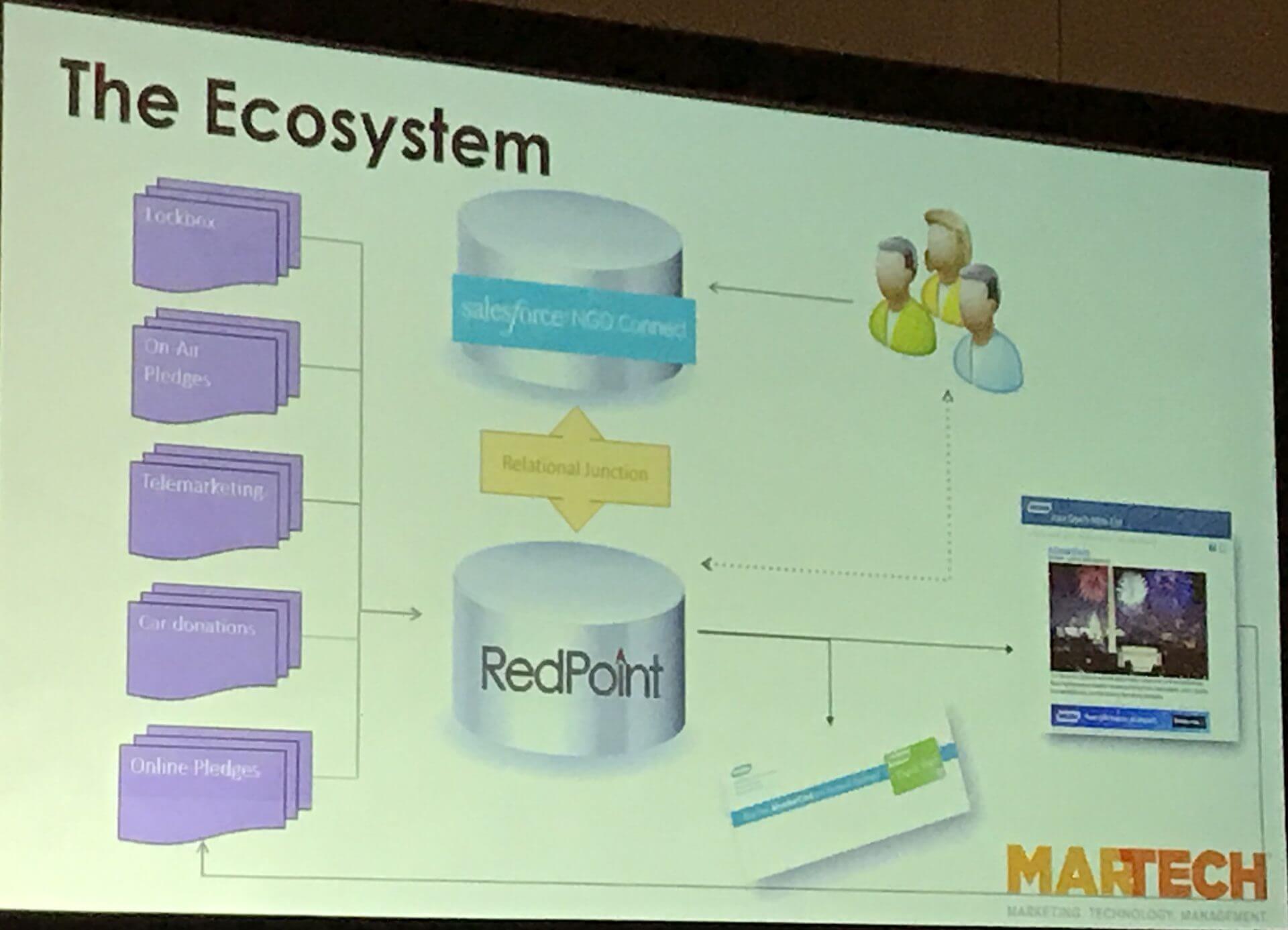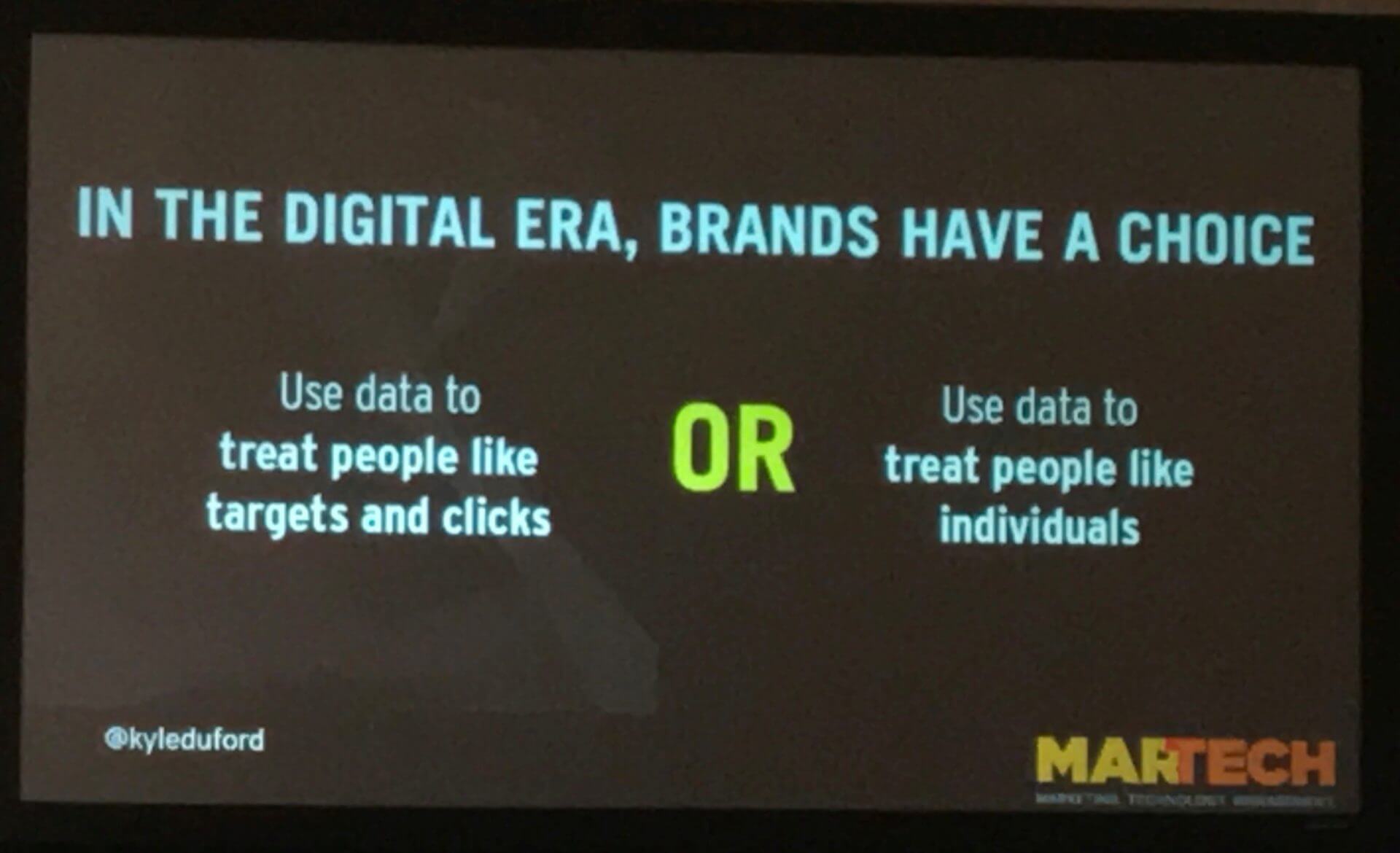The rise of the customer data platform as marketing’s ‘central nervous system’
Marketers finding success and efficiency from a centralized customer data center emerged as a theme at the MarTech Conference in Boston.
In all the talk about marketing technology stacks throughout the sessions held during our MarTech Conference in Boston this week, several themes emerged. One of those themes was around the question of centralization, tool connectivity and the rise of customer data platforms (CDPs) becoming the heart of the tech stack.
Doc Martens VP of Digital & Ecommerce Kyle Duford refers to his company’s CDP as “the central nervous system” of its marketing corpus. “Everything runs through that one platform,” he told the audience. The brand uses custom mapping techniques for IDs, and “Lytics is linked in to everything” else in the stack.
Cate Twohill, senior director of technology solutions at Boston’s public media outlet, WGBH, discussed the central role RedPoint Global’s customer engagement platform plays in the media group’s donor marketing efforts. The platform “provides a single point of execution across all channels,” she explained, including direct mail and email campaigns. With direct mail efforts, in particular, duplicate records became an expensive problem for the non-profit. The group found it had 80,000 duplicate accounts when the data first ran through RedPoint’s system.

WGBH’s marketing technology ecosystem revolves around its use of RedPoint.
Due in large part to the data cleanup, Twohill says the RedPoint migration and updated instance of Salesforce NGO Connect was net revenue positive at the end of year one.
“A siloed hyper-specialized martech stack makes it hard to reach the right person at the right time with the right message,” said Doc Martens’ Duford. “How do you take these great vendors and cool tools to help build that progressive customer profile?” Duford says the answer for Doc Martens has been a CDP (customer data platform).
With a CDP like Lytics, companies can achieve resolved comprehensive profiles that encompasses all the touch points a user engages through, time of day users likely to engage, purchase history, web engagement, email engagement, heuristics, behavioral scoring and more, explained Duford. “You can link up the customer data to help tell a great story across channels.” That can mean getting hyper-targeted messaging out to niche audience segments and the difference between treating people “like targets and clicks” versus “like individuals.”

Doc Martens’ Kyle Duford reminds marketers to use data to treat people like individuals, not clicks.
Not everyone is bullish on the idea that a “central nervous system” is a good thing. “I believe there should be systems of record for different areas of organizations — sales, finance, etc. — and there need to be rules between them. A single database can be overwritten,” said Brian Kardon, CMO of business communication provider Fuze and former Eloqua CMO, during a keynote panel discussion on Wednesday.
In that same panel, Mike Volpe, CMO at Cybereason and former HubSpot founder, countered that a “single source of truth for a customer is good,” but cautioned the need to have a solid operations team and a clear strategy. “People underestimate the cost of integrations and training.”
Jon Miller, CEO and co-founder of account-based marketing platform Engagio and former Marketo co-founder, expects to see more tools like Zapier that use API integrations to create “virtual single views.” But Miller sees a bigger shift coming.
“I believe there will be another generation of marketing platforms that will replace the current ones. Things like big data and machine learning are too big to ignore.” Miller expects this next generation of platorms (like Engagio) will “orchestrate” all the various initiatives involved in marketing.
Contributing authors are invited to create content for MarTech and are chosen for their expertise and contribution to the martech community. Our contributors work under the oversight of the editorial staff and contributions are checked for quality and relevance to our readers. The opinions they express are their own.
Related stories
